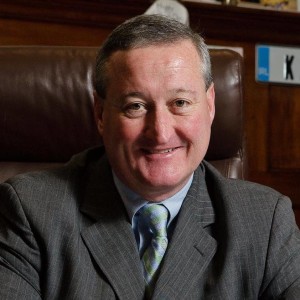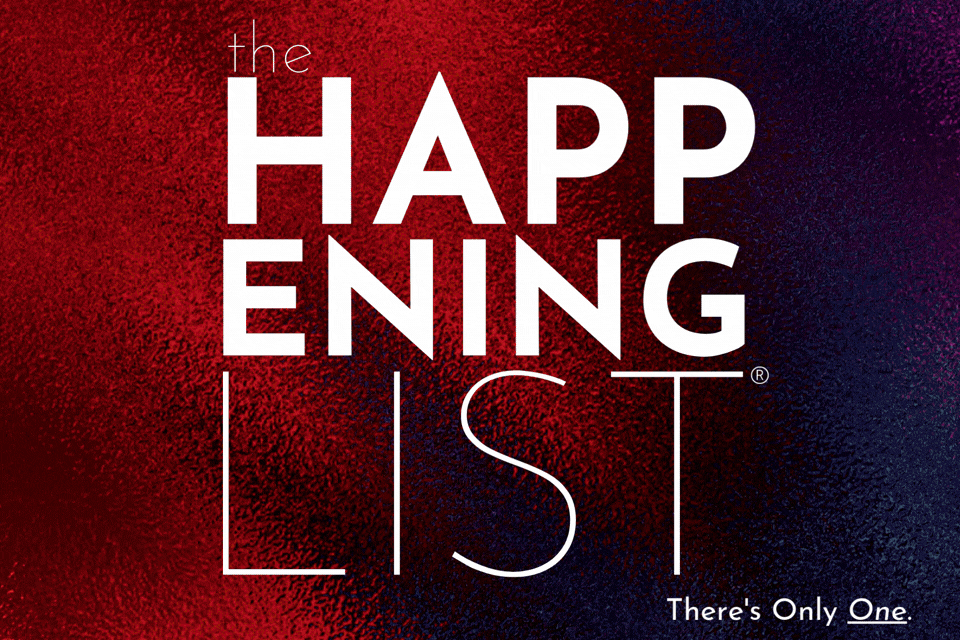 James F. Kenney, a former councilman and son of a South Philadelphia firefighter who promised to implement a regimen of progressive municipal policies, has been elected the city’s 99th mayor.
James F. Kenney, a former councilman and son of a South Philadelphia firefighter who promised to implement a regimen of progressive municipal policies, has been elected the city’s 99th mayor.
Kenney, a Democrat, trounced his nominal Republican opposition, businesswoman Melissa Murray Bailey, after drawing widespread support from voters across the city. He had equally strong backing from the city’s political establishment, building trades and teachers’ union.
An Irish-Catholic who marched with the Mummers growing up, Kenney has transformed over a long public career from onetime disciple of disgraced former state Sen. Vince Fumo into a politician with strong backing from African-Americans, immigrant communities and political reformers. He distinguished himself from his primary challengers with vocal support for traditional public schools and reforming police practices — and with the financial help of Philadelphia’s preeminent power broker, union leader John Dougherty.
In an overwhelmingly Democratic city, there was little chance Kenney would lose the November election, but he continued to campaign after the May primary with an intensified focus on combating poverty. A common phrase he employed at almost every event was about equality for all city residents, and “should not be defined by zip code.”
Now it falls to Kenney to actually implement the robust increase in municipal services and educational opportunities he ran on. Here are some of the key planks from Kenney’s platform that he has pledged to implement over the coming years:
– Fixing schools (without raising property taxes): Like many of his former opponents, Kenney’s banner campaign pledge was that he would boost Philly’s troubled public schools while expanding educational offerings through universal pre-K, vocational tech and enhanced Community College programs. He’s also proposed transforming into social services hubs, to help the needy access welfare, job assistance and other government programs.
On the campaign trail, he’s pledged an additional $105 million annually in schools funding, and $40 million over three years to fund pre-K, among other costs. Perhaps more impressively, Kenney has said he would do so without sticking Philadelphians with another property tax increase, nor would he rely on state aid.
“We’re not waiting for Harrisburg to fly in and save us,” he said.
Instead, he has suggested squeezing new revenue from the city’s enormous non-profit sector, (major hospitals and universities, for the most part) through PILOTs, or “payments in lieu of taxes,” as well as through tax lien sales.
– Kinder, gentler policing: Another central feature of Kenney’s campaign was his opposition to the police tactic popularly known as “stop-and-frisk.” It’s an issue he often framed similarly to his successful council effort to decriminalize cannabis — a law enforcement tool of dubious efficacy that was disproportionately wielded against young black and Hispanic men.
“Those…times that someone is stopped for just being who they are creates a problem between them and the police. They don’t look at police as someone they can trust,” he said, at a press scrum in May.
– The war for city streets and sidewalks: An issue for which Kenney has displayed unusual passion, the mayor-elect has promised repeatedly to crack down on potholes, unsightly curbside dumpsters, sidewalks blocked by construction and parked cars. If it can detract from the experience of navigating the city, Kenney says he wants it gone.
The candidate honed in especially on careless contractors.
“That may be the first thing I tackle when I get [to the Mayor’s office],” Kenney said, in a June interview. “I mean you walk through streets in Manhattan or the Village or the Bronx or Brooklyn or wherever, constructions happening all over there but you never leave the sidewalk.”
He’s said he wants more aggressive enforcement (possibly even deputizing PPA officers for the effort) and bigger fees for blocked sidewalks. Kenney’s talked about creating a sort of “development czar” to cope with the intersection of construction and infrastructure, while promising a spring paving blitz to eradicate potholes left from the winter.
– Trash: Kenney also came out against Philly’s infamous litter and trash problem.
“It’s sad that we have to spend resources cleaning up after people. We could be putting that money into schools and other services. It is what it is, but we still have a responsibility to make the city clean,” said Kenney.
It might not seem like a particularly bold move to rail against litterbugs, but the outgoing Nutter administration had largely resigned itself to addressing the city’s unwanted reputation for filth through soft measures like education and community cleanups.
Conversely, Kenney said he wants to bring back regular street cleaning, a service that has vanished from most neighborhoods since the 1970s.
Original article by Ryan Briggs at The Philadelphia Inquirer
We Are Supported By:






